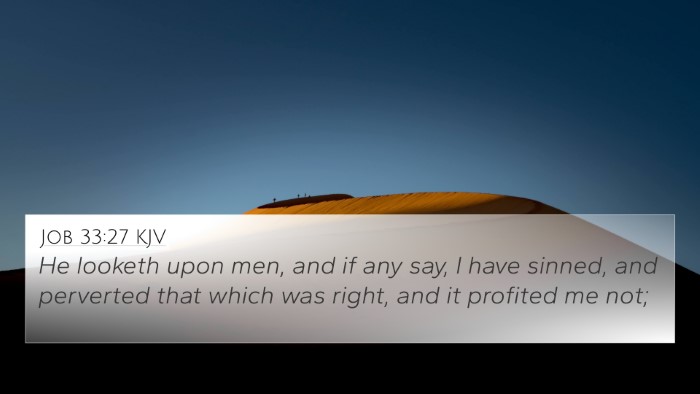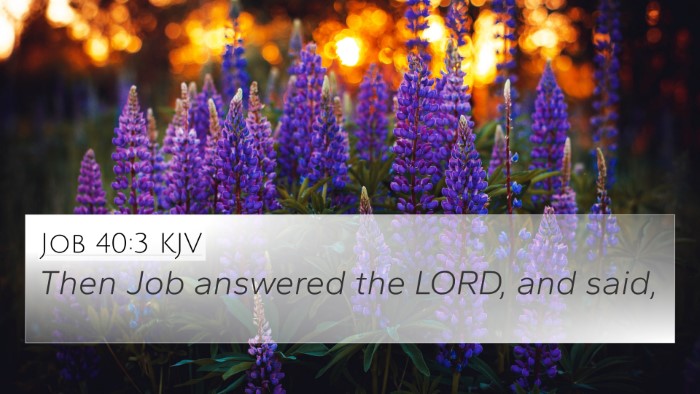Understanding Job 34:31
Context and Overview
Job 34:31 states, "For has anyone said to God, 'I have borne punishment; I will not offend anymore'?" This verse is part of Elihu's discourse, where he seeks to understand human suffering and divine justice. The complexity of this verse stems from its probing question about human acknowledgment of sin and the sincerity of repentance.
Insights from Public Domain Commentaries
Matthew Henry: Henry highlights that this verse presents an essential inquiry into how humans respond to divine correction. He suggests that true repentance involves a conscious acknowledgment of one's faults before God. Elihu, through this question, challenges Job (and, by extension, all readers) to reflect on their humility in the face of divine authority.
Albert Barnes: Barnes notes that the verse addresses the concept of making vows or promises to God. He emphasizes that there is a key distinction between verbal acknowledgment of sin and genuine repentance, which must reflect in one’s actions. The verse serves as a reminder of the necessity of spiritual integrity and the futility of hollow promises made in moments of distress.
Adam Clarke: Clarke points out that the verse signifies the human condition where individuals may admit their failings under pressure but often revert to old patterns after relief is given. He stresses the need for a transformation of heart rather than mere verbal commitments. This highlights the ongoing dialogue between God and humanity regarding sin and repentance.
Thematic Connections
- Your connections can be drawn with Psalm 51:17, which emphasizes a broken spirit as essential for acceptable repentance.
- The verse links to 1 John 1:9, which speaks of confessing sins to receive forgiveness, illustrating a similar theme of acknowledgment.
- Proverbs 28:13 integrates the idea of concealing sins versus confessing them, reinforcing the message from Job 34:31.
- There is a parallel to James 4:10, where humility before God leads to exaltation, echoing Elihu's appeal.
- Romans 2:4 discusses the patience of God leading one to repentance, which can relate back to the lesson of Job's anguish.
- Hebrews 12:5-6 discusses the discipline from the Lord as a sign of love, aligning with Elihu's intention to correct Job.
- Luke 13:3 echoes the call to repentance, reinforcing the necessity of sincere acknowledgment of one’s wrongs.
- Matthew 3:8 illustrates the need for fruits of repentance, pointing to the actions that should follow acknowledgment.
- 2 Corinthians 7:10 describes godly sorrow leading to repentance, a key element in understanding Job's response.
- Isaiah 55:7 invites the wicked to forsake their ways, paralleling Elihu’s urging for sincere repentance.
Practical Applications
This verse invites believers to engage in self-reflection regarding their spiritual walk:
- Acknowledgment of Sin: Reflect on the importance of recognizing personal failings as part of spiritual growth.
- Commitment to Change: Understand that true repentance involves actions that align with vows made to God.
- Humility Before God: Embrace humility as a pathway to receiving divine wisdom and understanding.
- Continuous Dialogue: Maintain an active conversation with God regarding struggles and shortcomings.
Conclusion
Job 34:31 serves as a compelling reminder of the necessity of sincere repentance and the human tendency to seek comfort without genuine change. By examining this verse alongside related scriptures and commentary insights, believers can deepen their understanding of the dynamics of sin, repentance, and divine justice.











